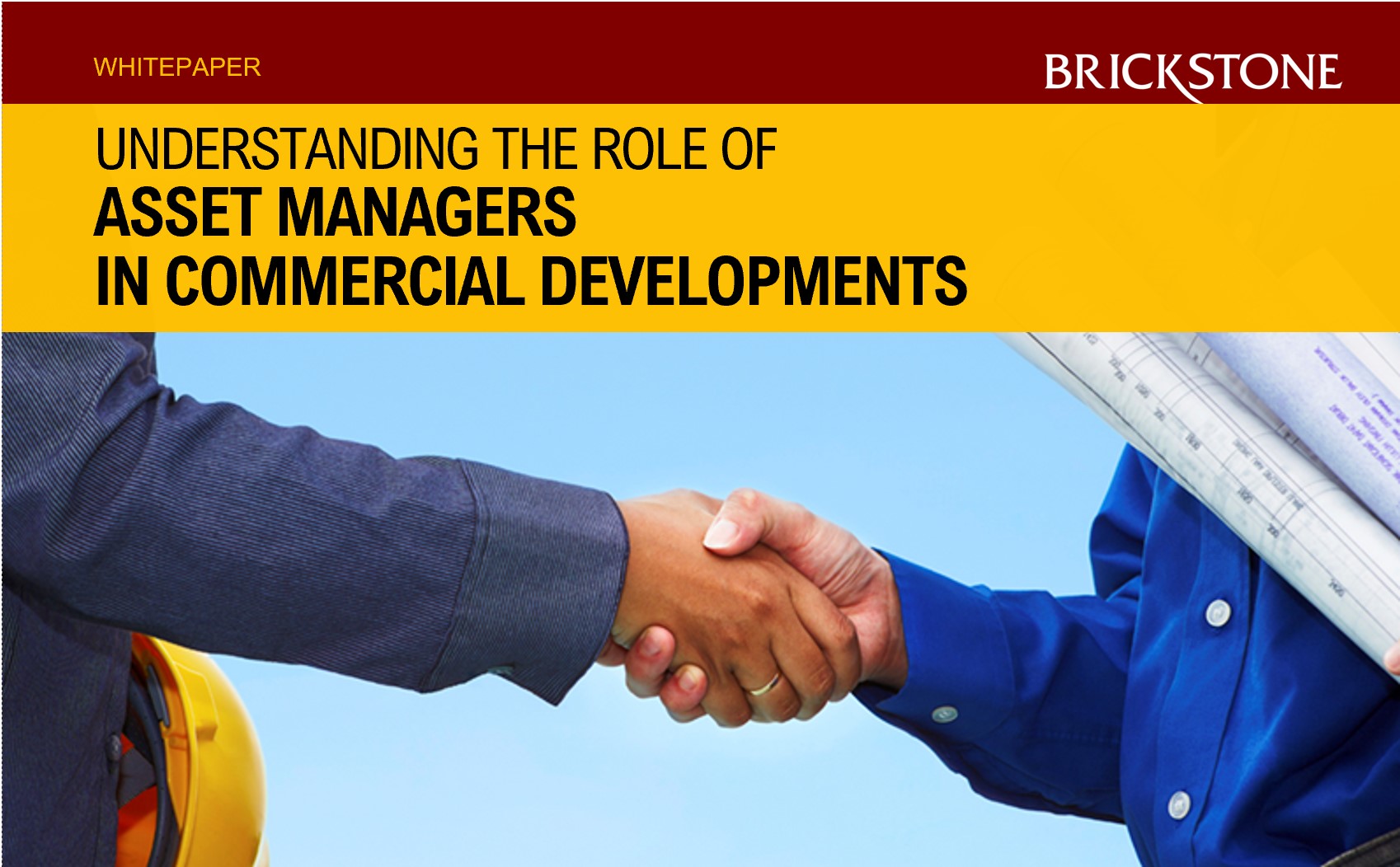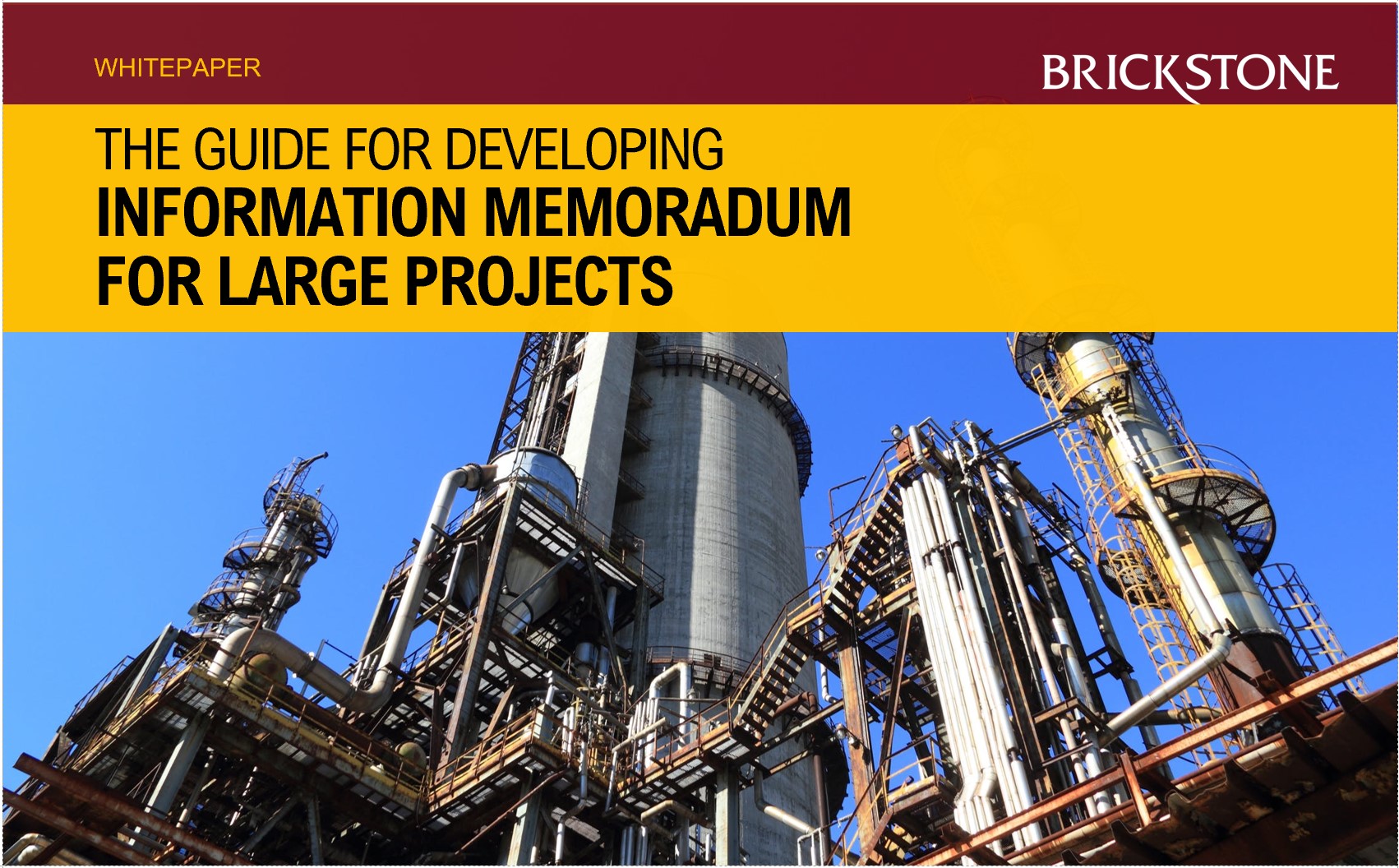Asset Managers in Commercial Developments
Asset Managers are saddled with the responsibility of managing the assets of their clients by providing professional financial advice and making smart investment decisions leading to profit, based on the client’s investment preferences. The advantages of utilizing the services of an asset manager in overseeing projects cannot be overemphasised, and this is as a result of their wealth of experience and expertise, their distinct inclination to manage projects more professionally, as well as their ability to borrow out-of-the-box knowledge and apply it to a particular transaction.
This White Paper has been created by the Brickstone Africa Asset Management Team to explain the roles of an Asset Manager and the value with which they bring to every project development team. In achieving the above objective, this White Paper is divided into five sections – The Role; The Approach; The Objective; The Implementation; and The Methodology.
The Role Section explores a wide but not exhaustive list of services offered by the Asset Manager through which they add value to the development of a project. The Approach Section for its own part goes further to shed a brighter light on the way the Asset Manager would help in the attainment of the overall goal of the project.
Furthermore, the Objective Section breaks down the sum and substance of that which is known as “Land Value Chain Optimization”, and how the Asset Manager employs it to deliver a valuable product or service for the market. In addition, the Implementation Section clarifies on how the Asset Manager creates unique solutions to difficult project developments.
And lastly, the Methodology Section explains how the Asset Manager realizes project delivery through asset management. In conclusion, this White Paper stresses on the unique value proposition offered by the proficient Asset Management team at Brickstone Africa and how we can optimize Asset Management and Investment Analysis through the “Brickstone Advantage”.
This White Paper emphasizes that the Asset Manager’s responsibility is divided into Investment Management and the actual Asset Management. In discharging the Investment Management role, the Asset Manager helps to implement the business plan of their client’s asset and takes on an advisory role in defining and carrying out exit strategies.
Conversely, with regards to the Asset Management role, they engage in facility management, project management, property management, sales management, and contract management. For this part, the Asset Manager fully manages complex assets of all types; they select and coordinate the best possible professionals according to asset management needs; and they help in implementing, monitoring, and managing the defined Business Plan.
In addition to the above, the Asset Manager also adds value to Project Development Teams by conducting feasibility studies; searching for investment products that offer appropriate returns for the agreed level of risk; analysing and structuring investments; searching the market for investment products; assessing how well the product fits with the client’s investment profile; preparing the Asset Business Plan, and so on. Other roles of an Asset Manager are discussed extensively in this White Paper.
It must be noted that this White Paper expatiates on how the Asset Manager adds value particularly to project development. A few of the importance that the Asset Manager brings to the project development team includes – First, they aid in maximizing the overall profitability of the site. Second, they create analysis, options, and recommendations to the owner for decisions to be made by them. Third, they ensure implementation to achieve the objectives and decisions of the owner. Fourth, as required, they design implementation plans to achieve decisions for the general manager and management team based on those objectives.
In addition, they ensure that the strategy is converted to tactics and implemented with changes as required. And finally, they look at each Area of Operations and look for efficiencies, improvements, structure, operations, and quality. Other advantages to having an Asset Manager on the project development team, are discussed in further detail in this White Paper.
Moving forward, this White Paper attempts to demystify the approach taken by the Asset Manager to aid in project development in eight different sections. The first step is to create the initial concept, which will then be exposed to financial analysis. Afterwards, the next step will be to take the best use analysis concepts which meet the profitability requirements and expose them to the market for feedback once more.
Subsequently, the commercial viability will then be tested through hard and soft data. Finally, project absorption will occur, where the Asset Manager determines the required features, value drivers etc. to achieve the overall goal. These processes are discussed more extensively in the White Paper.
From the foregoing, it can be observed that the collective objective of the Asset Manager in project development is to achieve that which is known as “Land Value Chain Optimization”. This White Paper explains the meaning of Land Value Chain, and how the Asset Manager optimizes it. Land value chain is a set of activities that a firm operating in this industry performs in order to deliver a valuable product or service for the market. In order to optimize these sets of activities, an effective Asset Manager practices four processes, which are discussed in this White Paper.
Additionally, this White Paper discusses some implementation strategies that can help in creating solutions for difficult developments. These strategies are all embodied in the Project Development Business Plan, and some of them include the financial strategy, the operations strategy, the competitive advantage, the marketing strategy, and so on. All these implementation strategies ask a series of questions which help the project development team think critically and more exhaustively about the problem at hand and define the problems to find effective and long-lasting solutions.
Conclusively, in helping clients attain their overall objective, our unique selling point as Asset Managers at Brickstone Africa, is the “Brickstone Advantage”. In managing our client’s assets, we act as their representative in order to help them maximize the property’s financial performance. Primarily, the scope of our work would include but not limited to the initial assessment of the assets selected; highest and best use analysis; transaction structuring plan; information memorandum, and so on.
In achieving this Brickstone Advantage, we help Project Owners, Builders, Business Families (Hotels, Commercial Complexes, Apartments etc.) to focus on maximizing profits and increasing the value of their assets through ensuring that they get compensation linked to ROI. In addition to that, we aid in asset value appreciation, and also build capacity in sales, marketing, development, and other ends of the value chain.








